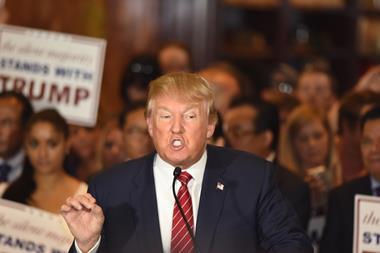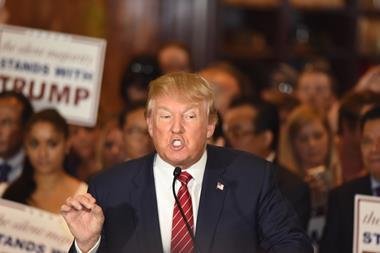The risk manager needs to be heard at the level of strategic decision-making to safeguard the sustainability of a business, AMRAE’s president, Brigitte Bouquot, argues

Corporate decision-making needs good risk management, making the risk manager a “unique enabler” for a sustainable strategy. The risk manager just needs to be heard. That is the message from AMRAE’s president, Brigitte Bouquot (pictured), speaking to StrategicRISK on the eve of the 2018 event in Marseille.
“I believe that risk management is the unique enabler to help the executive to take good decisions, to make the right investments, and to make your company more sustainable operationally,” said Bouquot.
“Throughout the business cycle the company needs to make sure it is investing enough in risk mitigation,” said Bouquot. “Risk mitigation has a cost, and the risk manager should be the advocate, at the highest level of the company, to make sure these costs are not skipped for short-term results. If you do not invest in risk mitigation, you are creating somewhere within the company, a security deficit.”
An unpredictable political, geopolitical and regulatory environment magnifies the risks, emphasises Bouquot. “We are in a very complex environment,” she cautioned. “We don’t know the roadmap the world is taking. Will it be the globalised map of the world, with liberal and open markets? Or will it be a very different world, perhaps under the influence of the Chinese model?”
Corporate decision-makers cannot project “a smooth mathematical curve from point A to point B,” Bouquot warned. “For me it’s very unclear what is the geopolitical future. We cannot expect the same rules of the game. That’s why there is the need for risk management to help anticipate and navigate the future of this new world.”
Accelerating technological advances add further uncertainty. “We are in a new era of robotics and artificial intelligence (AI). This will transform things, because there are spectacular divisions about how to manage AI, exposing big questions about culture. The risk manager should be there to help companies avoid living in some sort of Utopia,” said Bouquot.
The risk manager needs to be less defensive in attitude, as previously, she suggests. “The risk manager has to open their mind and make sure they can be a voice to the decision-maker to make sure they can make the right decision”, said Bouquot, “and not just anticipate that everything will continue as normal.”
Many obstacles exist, Bouquot admits, and a big one can be corporate culture. “One barrier is linked to the style of leadership within a company. If your company is driven by people who are exclusively profit orientated then it can mean a very short-term view, creating a barrier in the way risks are managed in the longer-term.
The risk manager should respond by being “more of a leader and more of a diplomat”, she thinks, to counsel decision-makers. “That will unravel if the risk manager is short-term-minded,” Bouquot warned.
Collective belief that utopia, there is also a kind of global awareness that we have to be careful regarding the internet, the fact that some perils are becoming at the scale of the planet, is also changing the mindset.
Sustainability relates not just to the company, but the planet, she notes. The economic environment has changed, and fears about politics and the environment have grown in stature. “Twenty years ago we were very optimistic – the sky was the limit,” said Bouquot.
“We know that natural resources are limited. We know we are vulnerable to climate change and globally interconnected risks, such as cyber risk. We live in interesting times, and nobody can say what will happen tomorrow. Business can be very supportive of global resilience, and if the risks are managed, our enterprise is sustainable.”




















No comments yet